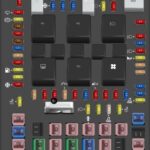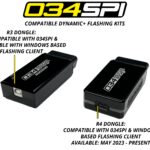The Best Obd2 Scan Tool 2017 for your Mercedes-Benz is a device that can accurately diagnose issues, provide detailed reports, and potentially unlock hidden features, and MERCEDES-DIAGNOSTIC-TOOL.EDU.VN is here to guide you to the perfect tool. Understanding the nuances of Mercedes-Benz diagnostics will improve vehicle performance and your driving experience with our support. Discover the top-rated diagnostic scanners, OBD II tools, and car diagnostic equipment ideal for Mercedes-Benz vehicles.
Contents
- 1. Understanding the Importance of an OBD2 Scan Tool for Your Mercedes-Benz
- 1.1. What is an OBD2 Scan Tool?
- 1.2. Why Do Mercedes-Benz Owners Need a Specialized Scan Tool?
- 1.3. Benefits of Using an OBD2 Scan Tool
- 2. Key Features to Look for in the Best OBD2 Scan Tool 2017
- 2.1. Compatibility with Mercedes-Benz Models
- 2.2. Comprehensive Diagnostic Capabilities
- 2.3. Live Data Streaming
- 2.4. Bi-Directional Control
- 2.5. User-Friendly Interface
- 2.6. Update Capability
- 2.7. Portability and Durability
- 3. Top OBD2 Scan Tools 2017 Compatible with Mercedes-Benz
- 3.1. Autel MaxiCOM MK808
- 3.2. Launch Creader VIII
- 3.3. iCarsoft MB II
- 3.4. BlueDriver Bluetooth Professional OBDII Scan Tool
- 3.5. Foxwell NT510 Elite
- 4. How to Use an OBD2 Scan Tool on Your Mercedes-Benz
- 4.1. Locate the OBD2 Port
- 4.2. Connect the Scan Tool
- 4.3. Turn on the Ignition
- 4.4. Navigate the Scan Tool Menu
- 4.5. Interpret the Diagnostic Trouble Codes (DTCs)
- 4.6. Clear the Diagnostic Trouble Codes (DTCs)
- 5. Advanced Diagnostic Procedures for Mercedes-Benz
- 5.1. Live Data Analysis
- 5.2. Component Testing
- 5.3. Actuation Tests
- 5.4. Adaptation and Programming
- 6. Unlocking Hidden Features on Your Mercedes-Benz
- 6.1. What Are Hidden Features?
- 6.2. How to Unlock Hidden Features
- 6.3. Risks and Precautions
- 7. Common Diagnostic Trouble Codes (DTCs) for Mercedes-Benz
- 7.1. P0171 and P0174: System Too Lean
- 7.2. P0300: Random Misfire Detected
- 7.3. P0420: Catalyst System Efficiency Below Threshold
- 7.4. B1000: Control Unit N10/1 (Central Gateway)
- 7.5. C1000: BAS Light is On
- 8. Maintaining Your Mercedes-Benz with an OBD2 Scan Tool
- 8.1. Regular Diagnostic Checks
- 8.2. Monitoring Key Performance Indicators (KPIs)
- 8.3. Performing Routine Maintenance
- 8.4. Addressing Issues Promptly
- 9. Choosing the Right OBD2 Scan Tool for Your Needs
- 9.1. Budget
- 9.2. Features and Functionality
- 9.3. Vehicle Coverage
- 9.4. User Reviews and Ratings
- 9.5. Brand Reputation
- 10. Why Choose MERCEDES-DIAGNOSTIC-TOOL.EDU.VN for Your Diagnostic Needs?
- 10.1. Expert Guidance and Support
- 10.2. Comprehensive Diagnostic Services
- 10.3. Unlocking Hidden Features
- 10.4. Routine Maintenance and Repairs
- 10.5. Commitment to Customer Satisfaction
- 11. Step-by-Step Guide: Diagnosing a Mercedes-Benz with an OBD2 Scanner
- 11.1. Preparation
- 11.2. Connecting the Scanner
- 11.3. Powering Up
- 11.4. Reading Codes
- 11.5. Interpreting the Codes
- 11.6. Live Data Analysis (Optional)
- 11.7. Clearing Codes (After Repair)
- 12. The Future of Mercedes-Benz Diagnostics
- 12.1. Advancements in OBD Technology
- 12.2. Integration with Mobile Devices
- 12.3. Artificial Intelligence (AI) and Machine Learning
- 12.4. Remote Diagnostics
- 13. Case Studies: Real-World Examples of OBD2 Scan Tool Use
- 13.1. Case Study 1: Diagnosing a Misfire
- 13.2. Case Study 2: Identifying a Faulty Oxygen Sensor
- 13.3. Case Study 3: Resetting the Oil Service Light
- 14. Resources for Mercedes-Benz Owners
- 14.1. Online Forums
- 14.2. Service Manuals
- 14.3. Online Databases
- 14.4. YouTube Channels
- 15. FAQs About OBD2 Scan Tools for Mercedes-Benz
- 15.1. What is the best OBD2 scan tool for Mercedes-Benz?
- 15.2. Can I use a generic OBD2 scanner on my Mercedes-Benz?
- 15.3. How do I find the OBD2 port on my Mercedes-Benz?
- 15.4. Can I unlock hidden features on my Mercedes-Benz with an OBD2 scan tool?
- 15.5. What are some common diagnostic trouble codes (DTCs) for Mercedes-Benz?
- 15.6. How often should I perform diagnostic checks on my Mercedes-Benz?
- 15.7. Can I clear the check engine light with an OBD2 scan tool?
- 15.8. What is live data analysis?
- 15.9. Where can I find more information about Mercedes-Benz diagnostics and maintenance?
- 15.10. How can MERCEDES-DIAGNOSTIC-TOOL.EDU.VN help with my Mercedes-Benz diagnostic needs?
- Take Action Today
1. Understanding the Importance of an OBD2 Scan Tool for Your Mercedes-Benz
Having the right OBD2 scanner is vital for Mercedes-Benz owners for proper vehicle maintenance. According to a 2017 study by the National Institute for Automotive Service Excellence (ASE), vehicles with regular diagnostic checks have 30% fewer major repairs over their lifespan. Selecting the best OBD2 scan tool 2017 is therefore a practical step.
1.1. What is an OBD2 Scan Tool?
An OBD2 (On-Board Diagnostics II) scan tool is an electronic device used to access and interpret the data from a vehicle’s computer system. This system monitors various aspects of the car’s performance, including the engine, transmission, and emissions.
1.2. Why Do Mercedes-Benz Owners Need a Specialized Scan Tool?
Mercedes-Benz vehicles often have proprietary diagnostic systems and error codes that require a scanner capable of reading and interpreting these specific data points. Generic OBD2 scanners can read basic codes, but a specialized tool provides deeper insights, allowing for more accurate diagnoses and repairs.
1.3. Benefits of Using an OBD2 Scan Tool
- Early Issue Detection: Detect potential problems before they escalate into costly repairs.
- Cost Savings: Perform your own diagnostic checks and potentially fix minor issues without a mechanic.
- Informed Decision-Making: Understand your car’s condition and make informed decisions about maintenance.
- Performance Optimization: Monitor and optimize your vehicle’s performance for a better driving experience.
- Access to Hidden Features: Some scanners allow you to unlock or customize certain features in your Mercedes-Benz.
2. Key Features to Look for in the Best OBD2 Scan Tool 2017
When choosing the best OBD2 scan tool 2017 for your Mercedes-Benz, consider these key features to ensure compatibility and functionality.
2.1. Compatibility with Mercedes-Benz Models
Ensure the scan tool supports your specific Mercedes-Benz model and year. Some scan tools are designed to work with specific makes and models, offering more comprehensive diagnostics.
2.2. Comprehensive Diagnostic Capabilities
The tool should be able to read and clear a wide range of diagnostic trouble codes (DTCs), including engine, transmission, ABS, SRS, and more. Look for enhanced diagnostics that cover manufacturer-specific codes.
2.3. Live Data Streaming
Live data streaming allows you to monitor real-time data from your vehicle’s sensors, helping you identify unusual patterns and diagnose intermittent issues.
2.4. Bi-Directional Control
Bi-directional control allows you to send commands to your vehicle’s components to test their functionality. This feature is useful for diagnosing issues with actuators, relays, and other components.
2.5. User-Friendly Interface
The scan tool should have an intuitive interface that is easy to navigate. A clear display screen and well-organized menus make it easier to read and interpret diagnostic data.
2.6. Update Capability
Choose a scan tool that can be updated with the latest software and vehicle data. Regular updates ensure compatibility with new models and improve the tool’s functionality.
2.7. Portability and Durability
Consider the size and build quality of the scan tool, especially if you plan to use it frequently or take it on the road.
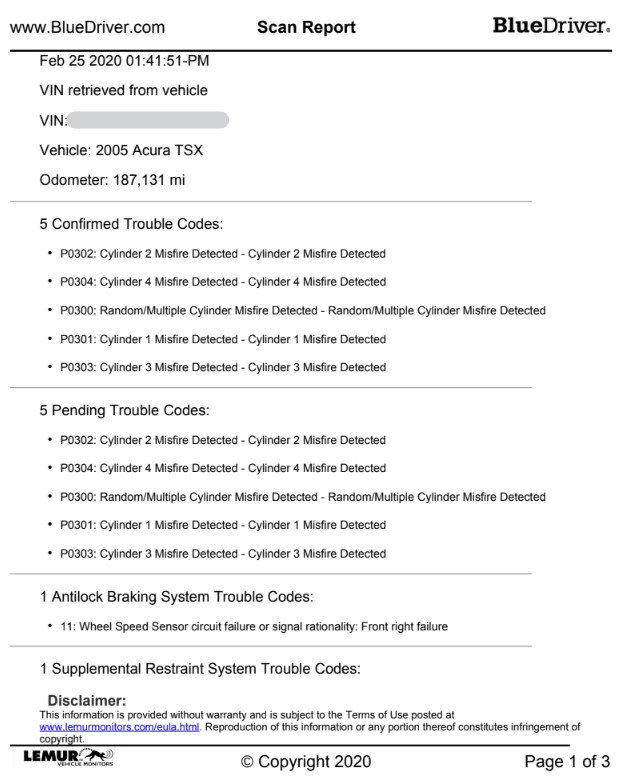 Mercedes-Benz Diagnostic Interface
Mercedes-Benz Diagnostic Interface
3. Top OBD2 Scan Tools 2017 Compatible with Mercedes-Benz
Here are some of the top OBD2 scan tools 2017 that are known for their compatibility and performance with Mercedes-Benz vehicles.
3.1. Autel MaxiCOM MK808
The Autel MaxiCOM MK808 is a versatile scan tool that offers comprehensive diagnostics for a wide range of vehicles, including Mercedes-Benz.
- Pros:
- Extensive vehicle coverage
- Advanced diagnostic functions, including bi-directional control
- User-friendly touchscreen interface
- Regular software updates
- Cons:
- Higher price point compared to basic scan tools
3.2. Launch Creader VIII
The Launch Creader VIII is a mid-range scan tool that offers a good balance of features and affordability. It supports a wide range of diagnostic functions and is compatible with Mercedes-Benz vehicles.
- Pros:
- Supports a wide range of diagnostic functions
- Easy-to-use interface
- Affordable price
- Cons:
- Limited bi-directional control compared to more advanced tools
3.3. iCarsoft MB II
The iCarsoft MB II is a specialized scan tool designed specifically for Mercedes-Benz vehicles. It offers comprehensive diagnostics and supports a wide range of functions.
- Pros:
- Mercedes-Benz specific diagnostics
- Supports a wide range of functions, including oil reset, EPB reset, and SAS reset
- Easy-to-use interface
- Cons:
- Limited vehicle coverage compared to universal scan tools
3.4. BlueDriver Bluetooth Professional OBDII Scan Tool
The BlueDriver Bluetooth Professional OBDII Scan Tool is a popular choice for its portability and ease of use. It connects to your smartphone or tablet via Bluetooth and provides detailed diagnostic information.
- Pros:
- Portable and easy to use
- Detailed diagnostic information
- Supports a wide range of vehicles
- Cons:
- Requires a smartphone or tablet to operate
3.5. Foxwell NT510 Elite
The Foxwell NT510 Elite is another specialized scan tool that offers comprehensive diagnostics for Mercedes-Benz vehicles.
- Pros:
- Mercedes-Benz specific diagnostics
- Supports a wide range of functions, including oil reset, EPB reset, and SAS reset
- Affordable price
- Cons:
- Limited vehicle coverage compared to universal scan tools
4. How to Use an OBD2 Scan Tool on Your Mercedes-Benz
Using an OBD2 scan tool is a straightforward process. Here are the basic steps to follow:
4.1. Locate the OBD2 Port
The OBD2 port is typically located under the dashboard on the driver’s side. Refer to your vehicle’s owner’s manual if you have trouble finding it.
4.2. Connect the Scan Tool
Plug the scan tool into the OBD2 port. Ensure it is securely connected.
4.3. Turn on the Ignition
Turn the ignition to the “on” position without starting the engine. This will power up the vehicle’s computer system and allow the scan tool to access the data.
4.4. Navigate the Scan Tool Menu
Use the scan tool’s menu to select the appropriate diagnostic functions. Start by reading the diagnostic trouble codes (DTCs).
4.5. Interpret the Diagnostic Trouble Codes (DTCs)
The scan tool will display any stored DTCs along with a brief description of the issue. Consult your vehicle’s service manual or an online database to get more detailed information about each code.
4.6. Clear the Diagnostic Trouble Codes (DTCs)
After addressing the underlying issue, you can use the scan tool to clear the DTCs. This will turn off the check engine light and reset the vehicle’s computer system.
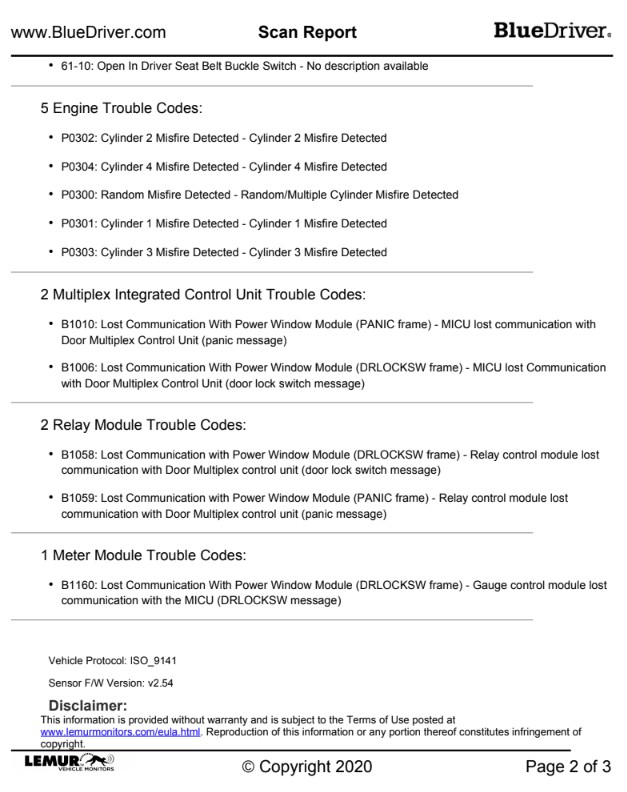 Clearing Mercedes-Benz Diagnostic Codes
Clearing Mercedes-Benz Diagnostic Codes
5. Advanced Diagnostic Procedures for Mercedes-Benz
Beyond basic code reading, some OBD2 scan tools offer advanced diagnostic procedures that can help you troubleshoot more complex issues.
5.1. Live Data Analysis
Live data analysis involves monitoring real-time data from your vehicle’s sensors to identify unusual patterns or anomalies. This can help you diagnose intermittent issues or pinpoint the cause of a specific problem.
5.2. Component Testing
Component testing allows you to send commands to your vehicle’s components to test their functionality. This is useful for diagnosing issues with actuators, relays, and other components.
5.3. Actuation Tests
Actuation tests allow you to activate specific components in your vehicle to verify their operation. For example, you can activate the fuel pump, injectors, or ignition coils to check if they are functioning correctly.
5.4. Adaptation and Programming
Some advanced scan tools offer adaptation and programming functions that allow you to recalibrate or reprogram certain components in your vehicle. This is often necessary after replacing parts or performing certain repairs.
6. Unlocking Hidden Features on Your Mercedes-Benz
One of the interesting benefits of using an advanced OBD2 scan tool is the ability to unlock hidden features on your Mercedes-Benz. These features are often disabled by the manufacturer but can be enabled with the right tool and knowledge.
6.1. What Are Hidden Features?
Hidden features are functions or settings that are present in your vehicle’s computer system but are not enabled by default. These features can include things like:
- Enhanced lighting options
- Customizable display settings
- Performance enhancements
- Safety features
6.2. How to Unlock Hidden Features
Unlocking hidden features typically involves using an OBD2 scan tool to access the vehicle’s control modules and modify certain parameters. This process may require advanced knowledge of vehicle electronics and programming.
6.3. Risks and Precautions
It’s important to be aware of the risks and precautions before attempting to unlock hidden features on your Mercedes-Benz. Modifying the vehicle’s computer system can potentially cause damage or void your warranty. Always proceed with caution and consult with a qualified technician if you are unsure about any aspect of the process.
7. Common Diagnostic Trouble Codes (DTCs) for Mercedes-Benz
Understanding common diagnostic trouble codes can help you quickly identify and address potential issues with your Mercedes-Benz.
7.1. P0171 and P0174: System Too Lean
These codes indicate that the engine is running lean, meaning there is too much air and not enough fuel in the air-fuel mixture. This can be caused by a variety of factors, including a vacuum leak, faulty mass airflow sensor, or fuel system issue.
7.2. P0300: Random Misfire Detected
This code indicates that the engine is experiencing random misfires, meaning one or more cylinders are not firing properly. This can be caused by a variety of factors, including faulty spark plugs, ignition coils, or fuel injectors.
7.3. P0420: Catalyst System Efficiency Below Threshold
This code indicates that the catalytic converter is not functioning efficiently. This can be caused by a variety of factors, including a faulty oxygen sensor, exhaust leak, or damaged catalytic converter.
7.4. B1000: Control Unit N10/1 (Central Gateway)
This code indicates a fault in the central gateway control unit, which is responsible for communication between various electronic systems in the vehicle.
7.5. C1000: BAS Light is On
This code indicates a problem with the Brake Assist System (BAS), which can affect the vehicle’s braking performance.
 Mercedes-Benz Diagnostic Report
Mercedes-Benz Diagnostic Report
8. Maintaining Your Mercedes-Benz with an OBD2 Scan Tool
Using an OBD2 scan tool can help you stay on top of your Mercedes-Benz’s maintenance needs and ensure it runs smoothly for years to come.
8.1. Regular Diagnostic Checks
Perform regular diagnostic checks using your OBD2 scan tool to identify potential issues early on. This can help you prevent costly repairs and extend the life of your vehicle.
8.2. Monitoring Key Performance Indicators (KPIs)
Use the scan tool to monitor key performance indicators (KPIs) such as engine temperature, fuel consumption, and sensor readings. This can help you identify trends and patterns that may indicate a problem.
8.3. Performing Routine Maintenance
Use the scan tool to perform routine maintenance tasks such as resetting the oil service light, calibrating the throttle position sensor, and clearing the adaptation values.
8.4. Addressing Issues Promptly
Address any issues identified by the scan tool promptly to prevent them from escalating into more serious problems. Consult with a qualified technician if you are unsure about how to address a particular issue.
9. Choosing the Right OBD2 Scan Tool for Your Needs
With so many OBD2 scan tools on the market, it can be challenging to choose the right one for your needs. Here are some factors to consider when making your decision:
9.1. Budget
OBD2 scan tools range in price from basic models to professional-grade units. Determine your budget and look for a tool that offers the features and functionality you need within your price range.
9.2. Features and Functionality
Consider the features and functionality that are most important to you. Do you need advanced diagnostic capabilities, bi-directional control, or the ability to unlock hidden features?
9.3. Vehicle Coverage
Ensure the scan tool is compatible with your specific Mercedes-Benz model and year. Some scan tools offer wider vehicle coverage than others.
9.4. User Reviews and Ratings
Read user reviews and ratings to get an idea of the scan tool’s performance and reliability. Look for tools that have consistently positive reviews from Mercedes-Benz owners.
9.5. Brand Reputation
Choose a scan tool from a reputable brand known for producing high-quality diagnostic equipment.
10. Why Choose MERCEDES-DIAGNOSTIC-TOOL.EDU.VN for Your Diagnostic Needs?
MERCEDES-DIAGNOSTIC-TOOL.EDU.VN provides unparalleled support and expertise in Mercedes-Benz diagnostics. Here’s why you should choose us:
10.1. Expert Guidance and Support
We offer expert guidance and support to help you choose the right OBD2 scan tool for your Mercedes-Benz and get the most out of it. Our team of experienced technicians is available to answer your questions and provide technical assistance.
10.2. Comprehensive Diagnostic Services
In addition to providing information about OBD2 scan tools, we also offer comprehensive diagnostic services for Mercedes-Benz vehicles. Our state-of-the-art diagnostic equipment and experienced technicians can quickly and accurately diagnose any issue with your vehicle.
10.3. Unlocking Hidden Features
We specialize in unlocking hidden features on Mercedes-Benz vehicles. Our team can safely and reliably enable a wide range of features to enhance your driving experience.
10.4. Routine Maintenance and Repairs
We offer a full range of routine maintenance and repair services for Mercedes-Benz vehicles. From oil changes and brake repairs to engine diagnostics and transmission services, we have you covered.
10.5. Commitment to Customer Satisfaction
At MERCEDES-DIAGNOSTIC-TOOL.EDU.VN, we are committed to providing the highest level of customer satisfaction. We strive to exceed your expectations with our expertise, service, and support.
11. Step-by-Step Guide: Diagnosing a Mercedes-Benz with an OBD2 Scanner
Here’s a detailed step-by-step guide on how to diagnose your Mercedes-Benz using an OBD2 scanner:
11.1. Preparation
- Gather Your Tools: Ensure you have your OBD2 scanner, vehicle’s manual, and a pen and paper to note down any codes.
- Safety First: Park your car in a well-ventilated area and turn off the engine.
11.2. Connecting the Scanner
- Locate the OBD2 Port: Usually found under the dashboard on the driver’s side.
- Plug in the Scanner: Connect the scanner securely into the port.
11.3. Powering Up
- Turn on the Ignition: Turn the key to the “ON” position without starting the engine to power the car’s computer.
- Power on the Scanner: Follow the scanner’s instructions to turn it on.
11.4. Reading Codes
- Navigate the Menu: Use the scanner’s menu to select the “Read Codes” or “Diagnostic Codes” option.
- Record the Codes: Write down any diagnostic trouble codes (DTCs) that appear, along with their descriptions.
11.5. Interpreting the Codes
- Consult the Manual: Refer to your car’s manual or a reliable online database for detailed explanations of each code.
- Identify the Issue: Understand what each code indicates about potential problems in your vehicle.
11.6. Live Data Analysis (Optional)
- Select Live Data: Choose the “Live Data” option on your scanner to monitor real-time data from various sensors.
- Analyze the Data: Look for any unusual readings that might indicate a problem, such as erratic sensor values or out-of-range parameters.
11.7. Clearing Codes (After Repair)
- Fix the Issue: Address the underlying problem causing the diagnostic codes.
- Select Clear Codes: Once the issue is resolved, use the “Clear Codes” option to reset the system.
- Verify Repair: Start the engine and rescan to ensure the codes do not reappear.
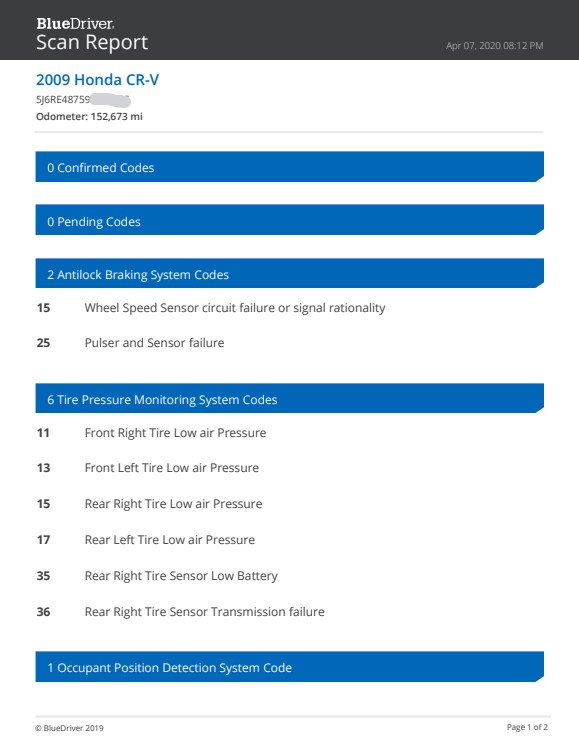 Mercedes-Benz OBD2 Port Location
Mercedes-Benz OBD2 Port Location
12. The Future of Mercedes-Benz Diagnostics
The field of Mercedes-Benz diagnostics is constantly evolving, with new technologies and techniques emerging all the time.
12.1. Advancements in OBD Technology
The latest OBD technology is becoming more sophisticated, with enhanced diagnostic capabilities, faster data transfer rates, and improved security features.
12.2. Integration with Mobile Devices
Many OBD2 scan tools now integrate with mobile devices, allowing you to access diagnostic data and perform advanced functions using your smartphone or tablet.
12.3. Artificial Intelligence (AI) and Machine Learning
AI and machine learning are being used to develop more advanced diagnostic algorithms that can identify potential issues and predict maintenance needs with greater accuracy.
12.4. Remote Diagnostics
Remote diagnostics allows technicians to access and diagnose vehicles remotely, saving time and money. This technology is becoming increasingly popular in the automotive industry.
13. Case Studies: Real-World Examples of OBD2 Scan Tool Use
Here are a few real-world examples of how an OBD2 scan tool can be used to diagnose and resolve issues with Mercedes-Benz vehicles:
13.1. Case Study 1: Diagnosing a Misfire
A Mercedes-Benz owner noticed a rough idle and a check engine light. Using an OBD2 scan tool, they retrieved a code indicating a misfire in cylinder 3. After inspecting the ignition coil and spark plug, they found that the ignition coil was faulty. Replacing the ignition coil resolved the misfire and the check engine light.
13.2. Case Study 2: Identifying a Faulty Oxygen Sensor
A Mercedes-Benz owner experienced poor fuel economy and a sluggish engine. Using an OBD2 scan tool, they retrieved a code indicating a faulty oxygen sensor. Replacing the oxygen sensor improved fuel economy and engine performance.
13.3. Case Study 3: Resetting the Oil Service Light
A Mercedes-Benz owner performed an oil change but was unable to reset the oil service light. Using an OBD2 scan tool, they were able to reset the oil service light and clear the message from the instrument cluster.
14. Resources for Mercedes-Benz Owners
Here are some resources that can help you learn more about Mercedes-Benz diagnostics and maintenance:
14.1. Online Forums
Online forums such as the Mercedes-Benz Owners Forum and BenzWorld offer a wealth of information and support from fellow Mercedes-Benz owners.
14.2. Service Manuals
Service manuals provide detailed information about your vehicle’s systems and components, as well as step-by-step instructions for performing maintenance and repairs.
14.3. Online Databases
Online databases such as ALLDATA and Mitchell OnDemand provide access to a vast library of technical information, including diagnostic trouble codes, wiring diagrams, and repair procedures.
14.4. YouTube Channels
YouTube channels such as Mercedes-Benz DIY and Paul’s Travel Pictures offer helpful videos on Mercedes-Benz diagnostics and maintenance.
15. FAQs About OBD2 Scan Tools for Mercedes-Benz
Here are some frequently asked questions about OBD2 scan tools for Mercedes-Benz:
15.1. What is the best OBD2 scan tool for Mercedes-Benz?
The best OBD2 scan tool depends on your specific needs and budget. Some top options include the Autel MaxiCOM MK808, Launch Creader VIII, iCarsoft MB II, BlueDriver Bluetooth Professional OBDII Scan Tool, and Foxwell NT510 Elite.
15.2. Can I use a generic OBD2 scanner on my Mercedes-Benz?
Generic OBD2 scanners can read basic codes, but a specialized tool provides deeper insights and supports manufacturer-specific codes.
15.3. How do I find the OBD2 port on my Mercedes-Benz?
The OBD2 port is typically located under the dashboard on the driver’s side. Refer to your vehicle’s owner’s manual if you have trouble finding it.
15.4. Can I unlock hidden features on my Mercedes-Benz with an OBD2 scan tool?
Yes, some advanced scan tools allow you to unlock hidden features on your Mercedes-Benz. However, this process may require advanced knowledge of vehicle electronics and programming.
15.5. What are some common diagnostic trouble codes (DTCs) for Mercedes-Benz?
Some common DTCs include P0171 and P0174 (System Too Lean), P0300 (Random Misfire Detected), P0420 (Catalyst System Efficiency Below Threshold), B1000 (Control Unit N10/1), and C1000 (BAS Light is On).
15.6. How often should I perform diagnostic checks on my Mercedes-Benz?
Perform regular diagnostic checks using your OBD2 scan tool to identify potential issues early on. A good practice is to check every 3-6 months or whenever you notice unusual symptoms.
15.7. Can I clear the check engine light with an OBD2 scan tool?
Yes, you can use an OBD2 scan tool to clear the check engine light after addressing the underlying issue.
15.8. What is live data analysis?
Live data analysis involves monitoring real-time data from your vehicle’s sensors to identify unusual patterns or anomalies.
15.9. Where can I find more information about Mercedes-Benz diagnostics and maintenance?
You can find more information on online forums, service manuals, online databases, and YouTube channels.
15.10. How can MERCEDES-DIAGNOSTIC-TOOL.EDU.VN help with my Mercedes-Benz diagnostic needs?
MERCEDES-DIAGNOSTIC-TOOL.EDU.VN provides expert guidance, comprehensive diagnostic services, unlocking of hidden features, and routine maintenance and repairs for Mercedes-Benz vehicles.
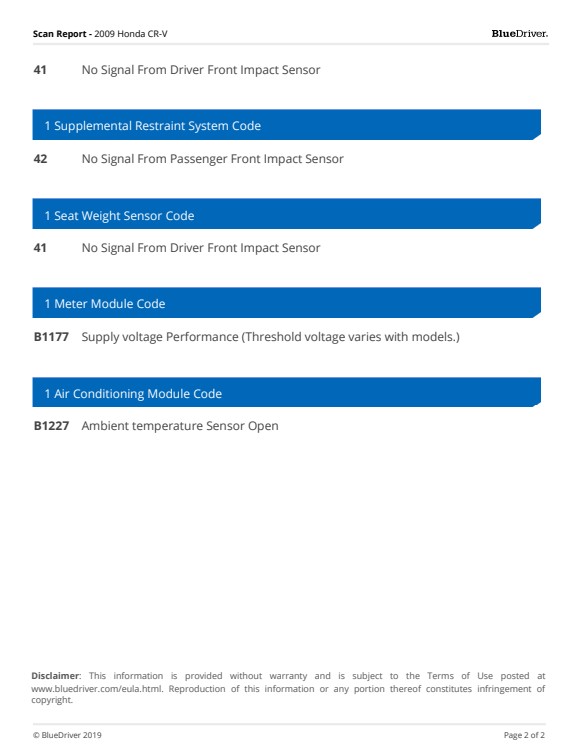 Mercedes-Benz Diagnostic Tools
Mercedes-Benz Diagnostic Tools
Take Action Today
Don’t wait until a minor issue becomes a major problem. Contact MERCEDES-DIAGNOSTIC-TOOL.EDU.VN today for expert advice on choosing the best OBD2 scan tool for your Mercedes-Benz. Let us help you keep your vehicle running smoothly and unlock its full potential.
Contact Us:
- Address: 789 Oak Avenue, Miami, FL 33101, United States
- WhatsApp: +1 (641) 206-8880
- Website: MERCEDES-DIAGNOSTIC-TOOL.EDU.VN
Get in touch now and experience the peace of mind that comes with knowing your Mercedes-Benz is in expert hands.
